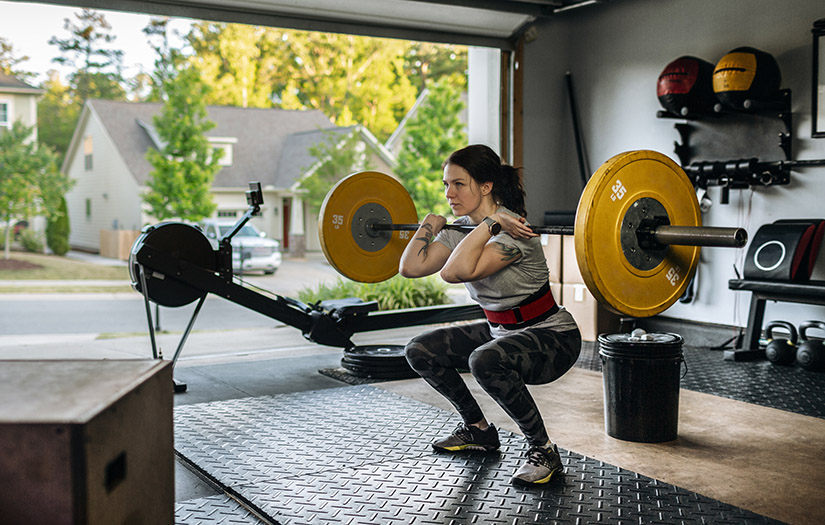Strength training should be at the top of your list if there is one thing you could do to enhance your health. It entails employing one or more muscular groups to carry out a certain action, such lifting a heavy object or squatting.
Strength training is now an essential component of the majority of fitness regimens due to the rising body of research demonstrating its numerous advantages. You might be curious about how strength training can improve your life if you’ve ever considered it.
Read More: Revolutionize Your Fitness Routine with Anaerobic Exercise: No Oxygen Required
Weightlifting, resistance training, and muscular training are other names for strength training.
Strength training, in its broadest sense, refers to any physical activity in which you utilise your own body weight or tools (such as dumbbells and resistance bands) to increase your muscular mass, strength, and endurance.
The primary forms of strength training consist of:
hypertrophy of the muscles. This style of strength training, sometimes referred to as “muscle development,” employs moderate to heavy weights to promote muscular growth.
muscular stamina. This is the capacity of your muscles to continue working out for an extended amount of time. High repetitions with low weights or your own body weight are typically used in training to build muscle endurance.
exercise in circuits. You cycle through several exercises during this type of full-body conditioning with little to no break in between them.

maximum skeletal power. Low repetitions (often 2-6) and hefty weights are used in this kind of workout to increase your overall strength. It should only be used by seasoned exercisers who have perfected their form.
an explosive force. Power and speed are combined throughout this exercise to increase your power output. It is typically used by skilled sportsmen to enhance their capacity for quick movements in competition.
Strength training is often focused on muscular endurance, circuit training, and muscle hypertrophy, with strength and power training being reserved for seasoned players.
You can utilise a variety of equipment (or none at all) depending on the strength training style you select to achieve your goals:
Using your own weight and the gravitational pull of the earth, you may make a variety of motions (e.g., pushups, squats, planks, pullups, and lunges)
Free weights are any exercise equipment that is not attached to a machine or the floor, such as dumbbells, barbells, kettlebells, medicine balls, or household objects.
Rubber bands that create resistance when stretched are known as resistance bands or loop bands.
Weight machines: equipment with hydraulics or adjustable weights attached to stress and resist the muscles.
Suspension equipment comprises of ropes or straps that are fastened to a stable point, allowing a person to execute different workouts using just their body weight and gravity.
Whichever method of strength training you do, the objective is to put your muscles under strain in order to promote muscle development and neuromuscular changes. Your muscles will get stronger with consistent use.

6 advantages of weightlifting supported by science.
- Strength training has several advantages that can enhance your health.
1. Effective calorie burning.
Your metabolism is increased by strength training in two different ways.
First off, gaining muscle speeds up your metabolism. You can burn more calories when at rest since muscles have a higher metabolic efficiency than fat mass.
Second, studies indicate that the metabolic benefits of strength training might last for up to 72 hours. This indicates that you continue to burn calories for hours or even days after your workout.
2. Strengthens you.
You get stronger when you do strength training.
Increasing strength makes it far simpler to carry out regular duties like chasing after your kids or lugging big shopping.
Additionally, by maintaining lean muscle mass, it may even boost endurance athletes by enhancing athletic performance in sports that call for speed, power, and strength.
3. May make you look slimmer.
You will look slimmer as you add more muscle and decrease fat.
This is because, pound for pound, muscle takes up less room on your body than fat does. As a result, even if the number on the scale doesn’t change, you might drop inches from your waist.
Also, a stronger and slimmer appearance is produced by reducing body fat and developing larger, stronger muscles that show off greater muscular definition.
4. Reduces the possibility of harm.
The risk of injury may be lowered if you incorporate strength training into your workout regimen.
Your muscles, ligaments, and tendons become stronger, more mobile, and have a wider range of motion as a result of strength training. This can strengthen the muscles surrounding your knees, hips, and ankles to provide you more protection against injuries.
Strength training can also be used to treat muscle imbalances. For instance, if your core, hamstrings, and glutes are stronger, lifting will be easier and less likely to result in lower-back issues.
Lastly, strength training reduces the risk of injury in adult and adolescent athletes.
In fact, a study with 7,738 athletes discovered that strength-training regimens cut the chance of injury by 33%. It was discovered to lessen the risk of injury in a dose-dependent way, meaning there was a 4% reduction in risk for every 10% increase in strength-training volume.

5. It reduces belly fat.
An increased risk of chronic illnesses, such as heart disease, type 2 diabetes, nonalcoholic fatty liver disease, and several kinds of cancer, is linked to abdominal fat, particularly visceral fat.
Strength-training activities have been demonstrated to be effective in lowering body fat in general and in the abdomen in several studies.
6. Lessens your chance of falling.
Strength training reduces your chance of falling since it improves your body’s ability to sustain itself (16Trusted Source, 17Trusted Source, 18Trusted Source).
In fact, a study including 23,407 persons over the age of 60 found that those who engaged in a well-rounded fitness regimen that includes balance training, weight training, and functional training had a 34% decrease in falls.
Thankfully, several methods of strength training, including tai chi, weightlifting, resistance band exercises, and bodyweight exercises, have been proven to be efficient.








